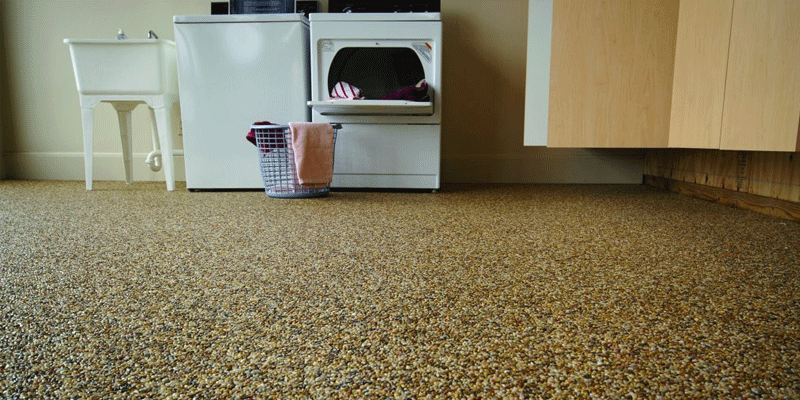
If you need a durable and long-lasting flooring material, epoxy may be the perfect option for you. Epoxy is a resin-based coating known for its strength and durability, making it ideal for use in various settings. This article will explore some of the common applications and uses for epoxy flooring.
To start, it's important to identify what epoxy is and how it is made. Epoxy is a composite material composed of two primary components: resin and hardener. The resin portion acts as the binder for the coating, while the hardener chemically reacts with the resin to form a strong bond that helps prevent cracking and peeling over time.
The materials used to make epoxy flooring are typically very strong, making the finished product ideal for high-traffic areas with a lot of wear and tear. This type of flooring is often used in commercial settings such as retail stores, restaurants, and office buildings. In addition to its durability, epoxy flooring is also easy to clean and maintain, which helps keep businesses looking their best.
One of the most common applications for epoxy flooring is a garage floor coating. A garage often sees spills, leaks, and stains, making it difficult to keep clean and look its best. Epoxy flooring can help protect your garage from wear and damage while also providing an attractive, glossy finish that will brighten up any workspace.
In addition to garages, epoxy flooring is also used in basements, laundry rooms, kitchens, workshops, and other high-traffic areas around the home. Its durability makes it ideal for these spaces where regular cleaning and maintenance are essential. As an added bonus, epoxy floors can easily be customized with decorative designs or patterns using stencils or paint, helping you create a truly unique space.
There are many benefits associated with installing epoxy flooring in your home or commercial setting. In terms of cost, epoxy floors are generally comparable to other types of flooring materials such as concrete or tiles. They are also very easy to maintain and clean, which can help save you time and money over the long term.
In addition, epoxy is resistant to stains, moisture, and chemicals, making it ideal for high-traffic areas where spills and leaks may be common. This durable material also helps prevent cracking and peeling over time, giving you peace of mind that your floor will look great for years to come. Whether you're looking for a garage upgrade or need a new floor for your kitchen or basement, epoxy may be the perfect solution for you.
When it comes to epoxy flooring, there are three main types: residential, commercial, and industrial. Each type is designed for a specific setting and has its own unique benefits.
Residential epoxy is typically thinner than the other two types and is best suited for garages, basements, and laundry rooms. It is not as durable as commercial or industrial epoxy but still provides a high-quality finish that can withstand regular use.
Commercial epoxy is a thicker coating that is designed to withstand more wear and tear than residential epoxy. It is often used in retail stores, restaurants, office buildings, and other high-traffic areas where a durable flooring material is essential.
Industrial epoxy is the thickest and most durable type of epoxy flooring available. It is typically used in factories, warehouses, and other industrial settings where extreme durability is required for safety reasons.
The type of epoxy coating you need will depend on the intended use for the floor. For example, a thinner residential epoxy may be sufficient for a garage or basement, while a thicker commercial or industrial epoxy may be necessary for a high-traffic retail setting.
Installing an epoxy floor is a big decision, but it can provide many benefits in terms of cost, durability, and easy maintenance. If you're considering this type of flooring for your home or business, be sure to consult with a professional to find the best option for your space.
When you're ready to install an epoxy floor, it's important to find a reputable contractor who has experience with this type of flooring. This will help ensure that the job is done properly and that you're happy with the final result.
There are a few ways to find a good epoxy contractor in your area. You can start by asking friends, family, and neighbors for recommendations. You can also check online directories such as Angie's List or HomeAdvisor. Finally, you can contact the National Flooring Contractors Association for a list of reputable contractors in your area.
Once you've compiled a list of potential candidates, be sure to schedule consultations with each one. This will give you a chance to ask questions, discuss your project, and get a feel for their level of expertise. After meeting with several contractors, you should be able to decide who to hire for the job.
When you're ready to schedule your epoxy flooring installation, be sure to contact a reputable contractor in your area. With their help, you can enjoy the many benefits of this durable and easy-to-maintain flooring material.